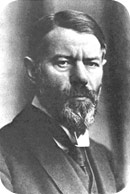The members of the Department of Sociology declare our shared sentiment that attacks on vulnerable groups are never acceptable. We unequivocally deplore the hateful speech directed to immigrants and Latinx/e peoples and categorically reject all forms of racism and xenophobia on campus and in our local communities. We stand in solidarity with movements on campus that demand attention to addressing and resolving the legacies and current manifestations of systemic racism.
 The study of the underpinnings of social structure — enduring patterns of social relations — has long been Sociology's primary mission. Sociology studies human conduct from the perspective of the history and the 'anatomy' or structure of the group. Thus, it tends to focus on how people coordinate their activities to reach individual and collective goals through the elaboration of roles, meanings, and norms that make behavior reciprocally predictable and organized. Sociology investigates how such patterns of interdependent activity originate and what sustains them, why they take one shape instead of another, how some change more rapidly than others, how they are related to each other, and how people justify and explain what they are doing. Sociology regards patterns of social relations as embedded in the historical process and learned as customary behavior—as institutional practices. Therefore, the sociological perspective is closely linked to
The study of the underpinnings of social structure — enduring patterns of social relations — has long been Sociology's primary mission. Sociology studies human conduct from the perspective of the history and the 'anatomy' or structure of the group. Thus, it tends to focus on how people coordinate their activities to reach individual and collective goals through the elaboration of roles, meanings, and norms that make behavior reciprocally predictable and organized. Sociology investigates how such patterns of interdependent activity originate and what sustains them, why they take one shape instead of another, how some change more rapidly than others, how they are related to each other, and how people justify and explain what they are doing. Sociology regards patterns of social relations as embedded in the historical process and learned as customary behavior—as institutional practices. Therefore, the sociological perspective is closely linked to  comparative historical and cross-cultural studies of social institutions and to psychological studies of human learning in a wide range of economic, educational, religious, familial, and political settings.
comparative historical and cross-cultural studies of social institutions and to psychological studies of human learning in a wide range of economic, educational, religious, familial, and political settings.
The department's program contributes to a general education in the arts and sciences by surveying sociology's basic modes of thought and strategies of inquiry. A vast amount of public and private decision-making in contemporary society is based on social research such as public policy evaluation; media, opinion, and marketing surveys; census studies; and population analyses. To cope with life in a modern society and to make independent judgments, an educated citizen should have a critical understanding of what social science research does to, for, and about him or her. Toward that end, many of the department's courses provide hands-on experience with modern social research procedures. Upon completion of our program, our students possess an expanded sociological imagination that can appreciate the variety and the contingent character of existing social arrangements, imagine alternatives, and think more deeply and critically about social order and change.
 In pursuit of this goal, class discussions focus on topics of public concern that are used to introduce students to the following sociological modes of thought and strategies of inquiry:
In pursuit of this goal, class discussions focus on topics of public concern that are used to introduce students to the following sociological modes of thought and strategies of inquiry:
- the scientific method as it pertains to the study of society
- aggregate analysis of macrosociological trends such as the "baby boom" and age-graded behavior
- modernization as the basic historical process that has transformed the West through industrialization, and the rest of the contemporary capitalist world-system through "Westernization"
- the fundamental conceptual frameworks that have been developed in the effort to describe and understand modernization
- recent attempts to create a comprehensive, general theory of social action and organization that integrates the diverse fields of specialization among and within the social sciences
- statistical analysis and data manipulation